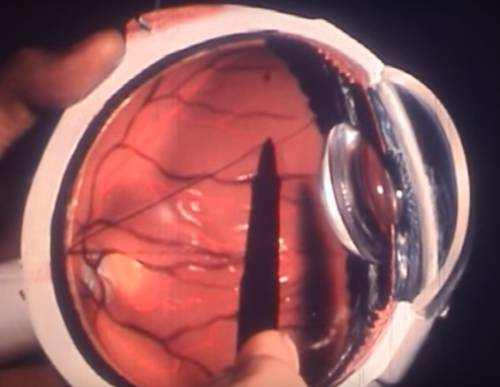Dizziness and blurred vision are two common symptoms that can occur together or separately. Dizziness is a feeling of lightheadedness, unsteadiness or a sensation of spinning. Blurred vision, on the other hand, is an impairment in visual clarity that makes objects appear hazy or out of focus. These symptoms can be caused by a variety of factors, such as inner ear disorders, high or low blood pressure, dehydration, medications and even stress.
While dizziness and blurred vision may seem harmless at first glance, they can greatly affect one’s quality of life and should not be ignored.
We’ll explore more about these two conditions and what you can do to alleviate them.
Understanding the Symptoms of Dizziness and Blurred Vision
Understanding the Symptoms of Dizziness and Blurred Vision is crucial in identifying the root cause of this discomforting sensation.
Dizziness and Blurred Vision are two interconnected symptoms that can indicate various underlying health conditions. Some medications can also trigger dizziness and blurred vision as a side effect. It is essential to identify other symptoms accompanying dizziness and blurred vision, such as headaches, nausea, and vomiting.
Eye and vision problems can also cause dizziness and blurred vision, such as dry macular degeneration and nystagmus. Knowing these symptoms can help individuals address underlying health conditions and seek proper medical attention when necessary.
Medication and its Link to Dizziness and Blurred Vision
Medications are an important part of treating various health conditions, but they may come with side effects, including dizziness and blurred vision. In some cases, medications used to treat high blood pressure, such as diuretics and beta-blockers, can lower blood pressure too much, causing dizziness and blurred vision.
Other medications that can lead to these symptoms include antidepressants, antihistamines, and opioids. It is important for patients to talk to their healthcare provider about any medications they are taking and any associated side effects. Adjustments to the medication regimen or alternative treatments may be necessary to alleviate the symptoms of dizziness and blurred vision.
Dizziness and Blurred Vision in the Morning

Dizziness and blurred vision can be particularly worrisome when they occur in the morning. Low blood pressure is a common cause, as blood tends to pool in the trunk while sleeping. Dehydration can also contribute to these symptoms, which can be further complicated by insomnia. Proper hydration and rest are essential for managing and preventing these symptoms.
However, dizziness and blurred vision in the morning can also be an indicator of more serious medical conditions, such as stroke or transient ischemic attack (TIA).
It is essential to seek prompt medical attention if these symptoms persist or worsen, as early intervention can be critical in managing serious health conditions.
Stroke or Transient Ischemic Attack (TIA) as a Possible Cause
As previously discussed, dizziness and blurred vision can be symptomatic of various underlying conditions. One potential cause is a stroke or transient ischemic attack (TIA), commonly known as a mini-stroke.
TIAs are temporary disruptions in blood supply to the brain, which can lead to a sudden loss of vision, confusion, dizziness, and slurred speech. TIAs are often a warning sign that a person is at high risk for a more severe stroke, which can result in long-term disability or even death. It is crucial to seek immediate medical attention if experiencing any symptoms of a TIA or stroke to prevent further complications.
Dehydration and its Role in Dizziness and Blurred Vision
Dehydration can cause many health issues, including dizziness and blurred vision. In the midst of intense exercise or taking diuretics, it is common to experience dehydration, which can lead to the pooling of blood in the veins of legs and a decrease in blood volume. As a result, the brain may not get sufficient blood and oxygen supply, causing dizziness and blurred vision.
It is important to replenish with fluids regularly, especially during workouts or hot weather. Dehydration can also cause dry eyes, further adding to the blurry vision, especially after waking up in the morning.
Managing dehydration is key to preventing such symptoms and keeping the body healthy. Therefore, it is important to seek proper medical attention if dizziness and blurred vision persist even after hydrating regularly.
Other Symptoms to Look Out for When Experiencing Dizziness and Blurred Vision
When experiencing dizziness and blurred vision, it’s essential to look out for other symptoms that could indicate an underlying condition. These symptoms may include chest pain, palpitations, shortness of breath, difficulty speaking or swallowing, weakness, numbness, or tingling sensations in the limbs, loss of coordination or balance, and fainting spells.
These symptoms could be indicative of a more severe condition, such as heart disease, neurological disorders, or even tumors. It’s crucial to seek proper medical attention immediately if these symptoms occur, as early diagnosis and treatment can improve outcomes and prevent complications.
Eye and Vision Problems that Can Cause Dizziness and Blurred Vision
Eye and vision problems can also contribute to the experience of dizziness and blurred vision. Conditions such as dry eye syndrome, inflammation of the optic nerve, and the need for glasses can all cause visual disturbances that may lead to feelings of disorientation and unsteadiness. In addition, diseases like diabetes can cause poor vision as well as vertigo or dizziness.
Nystagmus, an involuntary eye movement disorder that affects both eyes, can also contribute to shaky vision and dizziness. It’s important to pay attention to these symptoms and seek proper medical attention to determine the underlying cause and receive appropriate treatment.
Lifestyle changes and medications may be recommended to manage these symptoms effectively.
Preeclampsia and its Connection to Dizziness and Blurred Vision
Preeclampsia is a serious condition that can occur during pregnancy, typically after the 20th week. One of the symptoms of preeclampsia is high blood pressure, which can lead to dizziness and blurred vision. If left untreated, preeclampsia can cause damage to the organs, including the brain, liver, and kidneys, and can lead to seizures and stroke.
It’s important for pregnant women to monitor their blood pressure and report any symptoms of preeclampsia, including vision changes, to their healthcare provider as soon as possible.
Early detection and treatment can help prevent serious complications for both the mother and the baby.
Lifestyle Changes and Medications
To effectively manage dizziness and blurred vision, lifestyle changes and medications can be effective. Lifestyle changes include avoiding extreme temperatures, getting enough sleep, and staying hydrated. Medications that can help include antihistamines and anticonvulsants prescribed by a doctor.
In some cases, physical therapy may also be beneficial. It is important to seek proper medical attention and not ignore these symptoms, as they could be a sign of a more serious underlying condition. In addition to these steps, individuals should continue to monitor their symptoms and report any changes to their healthcare provider.
By taking these steps, individuals can manage their symptoms and improve their overall quality of life.
Seeking Proper Medical Attention
In case an individual experiences recurring symptoms of dizziness and blurred vision, it is crucial to seek medical attention immediately. Depending on the cause, treatment can begin with prescription medications, changes in lifestyle, and a combination of other therapeutic interventions. In severe cases, diagnostic tests and imaging may be necessary to check for underlying medical conditions that could be causing the symptoms.
It is essential to work closely with a medical professional throughout the diagnosis and treatment process, as proper medical attention and timely intervention can significantly improve the individual’s quality of life, and prevent further complications.



